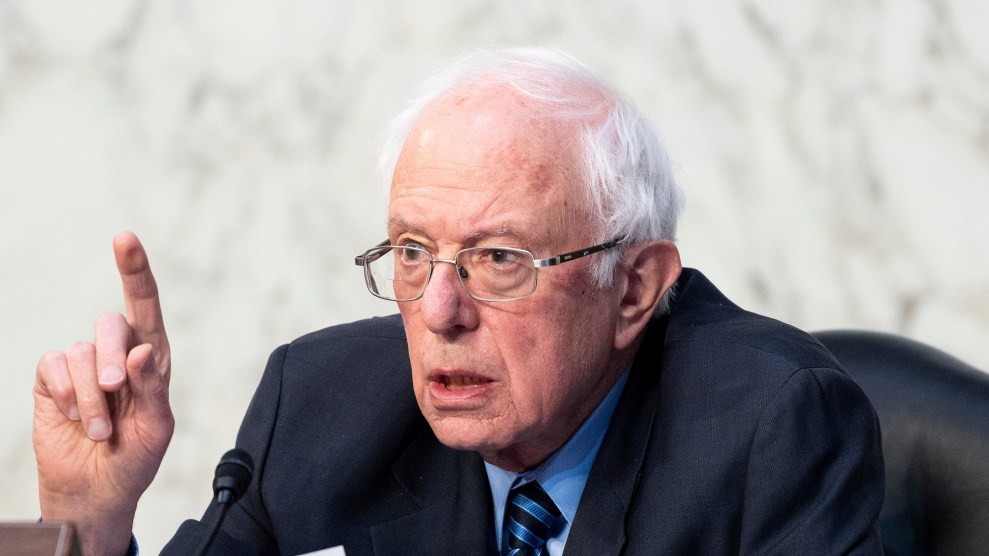
U.S. Senator Bernie Sanders (I-VT) speaking at a hearing of the Senate Budget Committee. Michael Brochstein/AP
Bernie Sanders, echoing other progressives that occupy his end of the political spectrum, said Sunday that President Joe Biden’s infrastructure plan is a good start but that he doesn’t think “it goes far enough in terms of climate.”
“The truth is, as everybody knows, the scientists tell us we have a handful of years in front of us in order to transform our energy system away from fossil fuel, or we’re going to face awful crises in terms of irreparable damage to our planet,” the senator from Vermont told MSNBC in a teaser for a segment that will air tonight. “And when we do that, we can create millions of good-paying jobs.”
Pres. Biden unveiled his $2T infrastructure plan this week but some Dems, like Rep. AOC, say it's "not nearly enough". @SenSanders agrees, telling @MehdiRHasan “i don’t think it goes far enough in terms of climate”.
Catch the full interview tonight at 8p on @msnbc pic.twitter.com/7A7hfRXkYJ
— The Mehdi Hasan Show (@MehdiHasanShow) April 4, 2021
Sanders is certainly not alone in his assessment. As my colleagues Rebecca Leber and Kara Voght wrote earlier this week analyzing the plan:
But exactly how any of these promises come together is to be determined. A senior White House official told reporters on Tuesday night that Biden’s proposal is the “beginning of a conversation with Congress and the American people.” Many details on precisely how these ideas could become reality have been left intentionally vague in order to give lawmakers the opportunity to negotiate the specifics. The fault lines over those negotiations have already hardened. The Democratic Party’s left flank has argued that the $2 trillion plan doesn’t spend nearly enough to address the crises the country faces. Rep. Pramila Jayapal (D-Wash.), chair of the Congressional Progressive Caucus, said the package “should be substantially larger,” noting Biden had committed to $2 trillion in climate investment alone as a candidate. Republicans, meanwhile, oppose both massive spending and the taxes on corporations the White House has proposed to pay for its plan.
Democrats will face pressure from climate and racial justice advocates to meet the unprecedented, intertwined crises the country faces. “We can’t wait to invest in the Black, brown and Indigenous communities hit the hardest by these crises, and we can’t wait until the next climate disaster tears our lives apart,” Working Families Party National Director Maurice Mitchell said in a statement. “Millions of us are depending on Congress to take this once-in-a-generation opportunity and deliver the jobs, care and justice we so urgently need, and we intend to make them deliver.”












